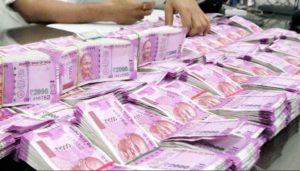
Indian Government Under Pressure Over Billionaires Fleeing After Defaulting Banks
India is trying to curb the practice of fleeing of businessmen after defaulting the credits they have taken from major banks of India.

Just few weeks after the largest bank fraud investigation was uncovered in the Indian Media, many lawmakers, bureaucrats and even court officials began drafting tighter rules in order to prevent citizens, who are trying to flee abroad to safer havens with unpaid dues.
Aircel Ltd., owned by Malaysian billionaire T Ananda Krishnan, is in indebted status as the mobile-carrier has slipped into bankruptcy and as a result a Mumbai Court has ordered last week that the top executives of Aircel Ltd cannot leave India. The very same day, Parliament began considering a bill which can confiscate the assets of so-called fugitive economic offenders, while officials have listed up for 91 people for no-fly, who are from such firms, which are termed as willful defaulters or those that refuse to get the loans repaid despite having all the means to do that.

The measure taken may lower public anger for billionaires who have already absconded abroad to the other countries, leaving behind in India failed businesses and debts that have summed up to at least USD 210 billion of bad loans on bank’s balance sheets. After coming to power at the Centre, Prime Minister Narendra Modi, took a pledge to weed out corruption and black money and corruption completely. But at present the situation is in a reverse direction. And this factor may become a hurdle among many factors, he is already facing for the coming national elections slated to be held in the year 2019.
“We can’t allow people to make a mockery of the law,” Finance Minister Arun Jaitley told reporters in New Delhi this month. “You first indulge in loot and then refuse to submit to the jurisdiction of our legal system.”
Arpinder Singh, a partner with accountancy firm E&Y IN Gurugram near New Delhi, who also heads fraud investigation and dispute services in India and emerging markets, says that a wide coverage of crackdown is on the way which will span up to federal criminal investigators, tax officials and also the banking regulator.
“There’s a lot of pressure on the industry right now,” Singh said, adding that the government measures are “very timely. Those facing the heat would be evaluating all their options,” he added.
The latest measures are seen as a part of a wider campaign that also includes controlling borrowers with payments defaults. The Central Bank of India has cut into pieces all the bad-debt resolution methods to make it one, that is, if banks fail to be able to fix a sour loan within 180 days, the issue will be referred to the bankruptcy court.
The Reserve Bank of India “has taken some very important steps by making banks report delinquencies quickly and enabling strict timelines soon after defaults,” informed Dhruv Phophalia, managing director of Alvarez & Marsal, who leads the professional services firm’s disputes and investigations practice in India.